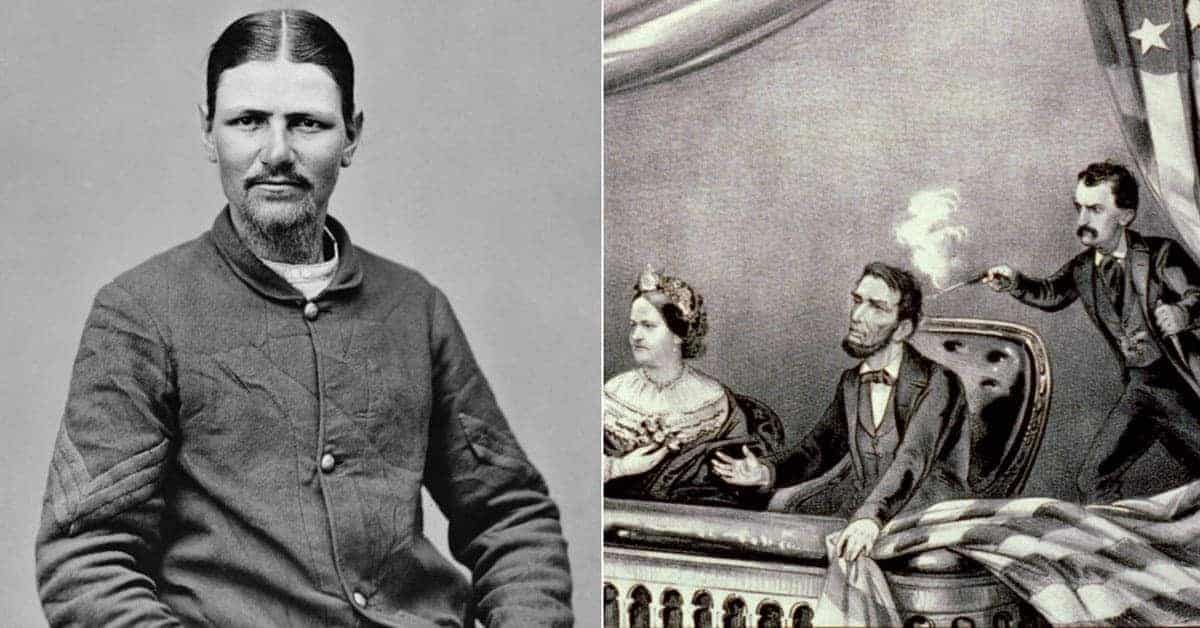It is a fair comment to suggest that Lee Harvey Oswald’s assassin, Jack Ruby, is far better than known than Boston Corbett, the man who killed John Wilkes Booth; the assassin of President Abraham Lincoln. Even fewer people know what became of Corbett after his brief stint in the spotlight.
Sad to say, after receiving kudos, Corbett stepped back into the shadows from whence he came. The rest of his days were spent attempting to scrape a living, spending time in an insane asylum before he apparently died in a fire. Since he was one of the most famous men in America in 1865, where did it all go wrong Lincoln’s Avenger?
Early Life
To understand his woes in later life, one only needs to look at his unusual existence before his brief brush with immortality. Thomas Corbett was born in London, England in 1832 but moved to Troy, New York with his family seven years later. In his youth, Corbett apprenticed as a hatter, an occupation he would return to at different intervals in his life.
The lack of health and safety regulations of the era led to regular exposure to fumes from mercury (II) nitrate which was used to treat fur that produced the felt on hats. Excessive exposure to this chemical routinely led to symptoms such as psychosis, hallucinations, and twitching; the latter of which was given the grim sobriquet, ‘the hatter’s shakes.’

Upon his return to New York City, he met and married a young woman. Sadly for Corbett, she died one year after their marriage in childbirth with their stillborn child. Understandably, this event broke him mentally, and he started drinking heavily and moved to Boston. Corbett would work during the day, and drift aimlessly around the city at night in a drunken haze.
On one such night, he encountered a street preacher who persuaded him to join the Methodist Episcopal Church. After his baptism, he changed his name to Boston and earned the nickname ‘Glory to God-Man’ due to his enthusiastic behavior at religious meetings. By this stage, Corbett grew his hair long to imitate Jesus and worked as a street preacher in the evenings. He was also known for warning his co-workers about their use of bad language.
By 1858, Corbett was well known as a religious fanatic, and on the night of July 16, 1858, he did something very drastic when temptation came his way in the form of two prostitutes. Corbett was so disturbed by the encounter that he castrated himself with a pair of scissors while reading Chapters 18 & 19 of the Gospel of Matthew. He ate his dinner and attended a prayer meeting before receiving medical assistance.
After taking several weeks to help, Corbett moved back to New York City and continued preaching street corners. The man of God’s religious impulses is what drew him to enlist in the United States Army during the Civil War. He joined the 12th New York Regiment two days before it set sail for Washington. Regarding his new enemies, Corbett reportedly told the women at his church: “I will say to them ‘God have mercy on your souls’ then pop them off.” Corbett had to remove his lengthy locks, but once in the army, he refused to put his country over God.

